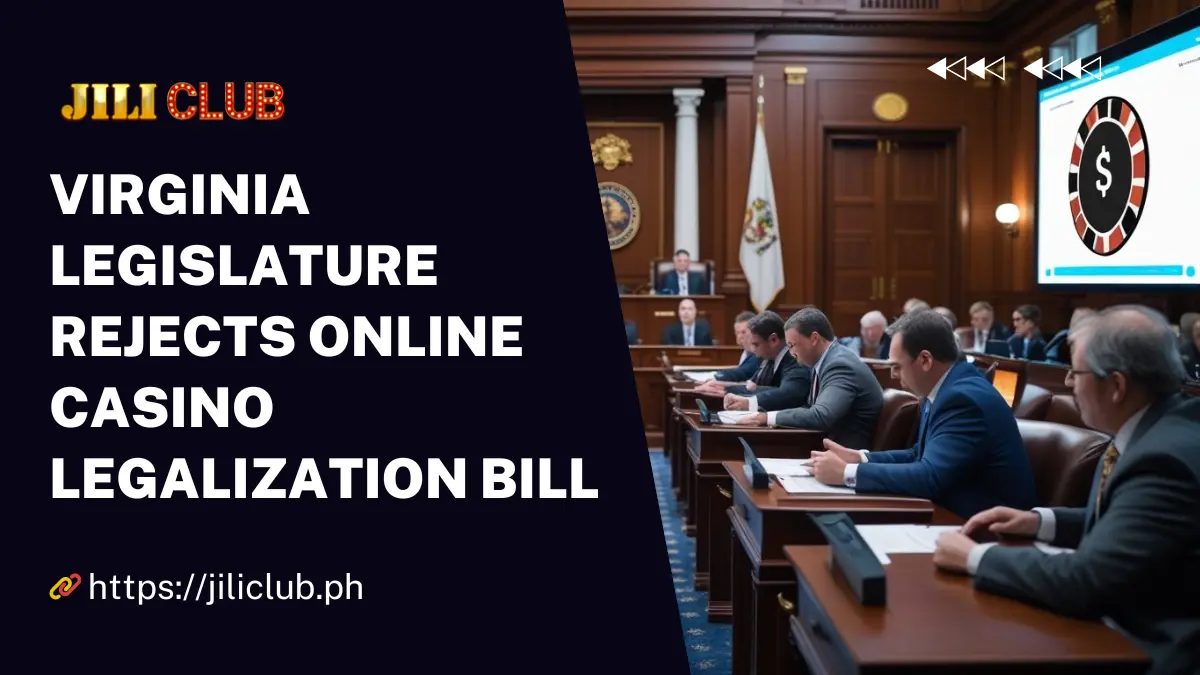Virginia lawmakers have voted down a proposed bill that would have legalized online casino gaming in the state, marking a significant setback for advocates of expanded gambling. The decision underscores ongoing tensions between the promise of economic benefits and concerns over the societal impacts of increased gambling access.
The Legislative Hurdle
The bill, which aimed to establish a regulated framework for online casinos, faced intense scrutiny from legislators during its review. Supporters championed the measure as a way to boost state revenues and create jobs, emphasizing the success of Virginia’s recent ventures into sports betting and brick-and-mortar casinos.
However, opponents raised alarms about the potential rise in gambling addiction and questioned whether the state was ready to handle the social consequences of expanding gambling to an online format. Calls for more in-depth research and robust safeguards were a common theme among dissenting voices.
“This is not just about dollars and cents. It’s about the impact on families, communities, and the vulnerable among us,” said one legislator who voted against the bill.
Virginia’s Gambling Evolution
Virginia has undergone a gradual transformation in its approach to gambling over the last few years. The legalization of sports betting in 2021 was a watershed moment, allowing Virginians to place wagers through licensed platforms. Overseen by the Virginia Lottery, the sector has since flourished, with millions in tax revenue flowing into state coffers.
The introduction of land-based casinos in cities like Norfolk, Danville, and Portsmouth further expanded the gambling landscape, promising economic revitalization in struggling regions. Yet, Virginia’s electorate has demonstrated mixed feelings on these developments. A 2020 referendum in Richmond rejected plans for a new casino, signaling ongoing hesitancy among some residents.
Online Casinos: A Step Too Far?
While sports betting and physical casinos have gained acceptance, the leap to online casinos appears to have crossed a line for many lawmakers. Critics worry that the convenience and accessibility of online gambling could exacerbate addiction problems and disproportionately affect vulnerable populations.
Proponents of the bill countered these concerns by highlighting the potential for stringent regulations, including age verification systems, self-exclusion programs, and limits on spending. They also pointed to other states, such as New Jersey and Michigan, where online casinos have proven to be lucrative sources of revenue with minimal reported societal fallout.
Recent Gambling Setbacks in Virginia
This latest defeat is not an isolated case in Virginia’s gambling history. In early 2024, lawmakers rejected a proposal to establish a casino in the affluent Northern Virginia region of Tysons Corner. Additionally, attempts to regulate “skill games” — controversial slot machine-like devices found in convenience stores — have also stalled amid fierce debate.
These rejections suggest a pattern of legislative caution, even as other states embrace broader gambling reforms.
What’s Next for Virginia?
With this bill’s failure, Virginia’s lawmakers and gambling industry stakeholders face critical questions about the future of gaming in the state. Advocates of online casinos will likely regroup and revise their approach, possibly including more comprehensive measures to address addiction and regulatory oversight.
At the same time, neighboring states’ gambling policies could influence Virginia’s stance. If states in the region successfully implement online casinos and reap economic rewards, the pressure on Virginia to follow suit could intensify.
For now, Virginians will continue to have access to sports betting and newly built land-based casinos, but the dream of placing bets on virtual poker and roulette remains on hold.
